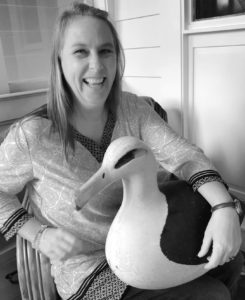Christen Mitchell
President
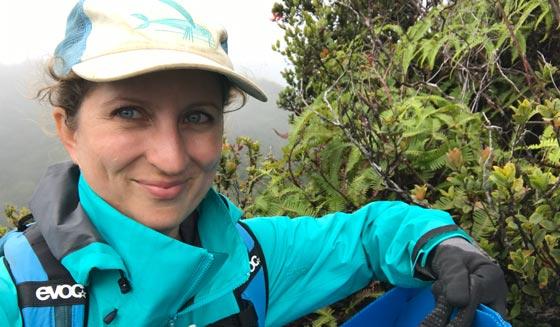
Dr. Lindsay Young
Vice President
Lindsay is the Vice President of Research for the National Geographic's Society Pristine Seas Program. Prior to joining National Geographic, Lindsay served as PRC's Executive Director.
Lindsay Young earned a Bachelor of Science from the University of British Columbia and a MS and Ph.D. from the University of Hawai`i where her research focused on the population genetics, at sea foraging ecology, and conservation priorities of Laysan Albatross.
Lindsay has authored numerous scientific papers, is the current chair of the World Seabird Union and serves on multiple IUCN commissions related to climate change and species conservation. Lindsay was one of the 2011 recipients of the US Fish and Wildlife Service Endangered Species Recovery Champion Award, the 2016 Pacific Seabird Group Special Achievement Award, the 2019 Koa Award for Conservation Leadership from the Conservation Council of Hawaii, and was one of the 2022 recipients of the Ralph Schreiber Conservation Award from the American Ornithological Society. She currently serves as an affiliate graduate faculty member at the University of Hawai`i Natural Resources and Environmental Management Department, and has been a past faculty member at the University of the Philippines as part of a Fulbright US Scholar award in 2023, a faculty member on the Fall 2018 voyage of Semester at Sea through Colorado State University and a visiting faculty member at Hokkaido University in 2019.
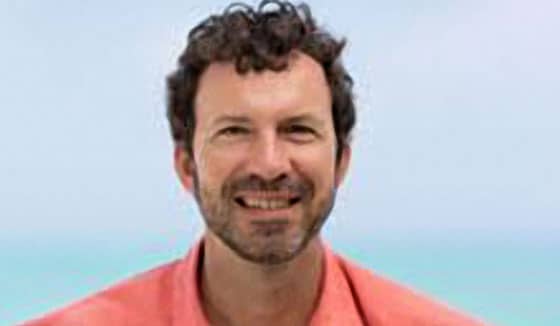
Dr. Alex Wegmann
Secretary
Alex is the Director of Science for The Nature Conservancy of Hawaii’s Palmyra Program. Previously, Alex worked for Island Conservation as the program manager for their US Pacific Islands and Micronesia Program. Alex received a BA in Anthropology from Linfield College, and his PhD in Botany from the University of Hawaii. His graduate research at Palmyra Atoll focused on terrestrial ecosystem response to invasive rats. He has over 20 years of experience with conservation projects on Pacific islands, including the Northwestern Hawaiian Islands, Line Islands, and Micronesia. His experience with Pacific island ecosystems has made Alex a valuable consultant to many government and non-government conservation organizations – the US Fish and Wildlife Service, National Oceanic and Atmospheric Administration, New Zealand Department of Conservation, The Nature Conservancy, and Coastal Conservation. Alex is presently directing a conservation science strategy applied to Palmyra Atoll yet focused on global conservation challenges, including coral reef restoration, conservation of island ecosystems, and sustainable marine fisheries.
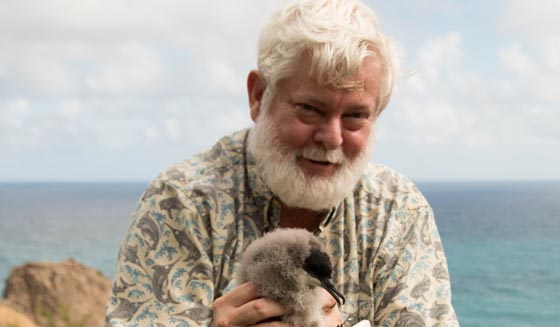
Dr. David Duffy
Director
David is a Professor of Botany, Ecology, Evolution and Conservation Biology (EECB) at the University of Hawaii at Manoa and the Unit Leader for the Pacific Cooperative Studies Unit (PCSU). David has his undergraduate degree (BS) from Harvard University and his Ph.D. (1980) from Princeton University.
His main areas of research are in how ecosystems respond to perturbations, both natural and human-caused. His work has included the effect of El Nino on seabirds in Peru, fishery interactions with seabirds in Peru and South Africa, the effects of Exxon Valdez oil spill and climate shifts on seabirds in Prince William Sound, the role of landscape in fostering Lyme Disease, the effect of forest harvesting in the Appalachians on spring herbaceous ground cover, and determining just how much of Alaska’s biodiversity is actually protected. Most recently he has become interested in how to shape management and science to respond to the problem of invasive alien species in Hawaii. How much science do you need to respond and how can management measure whether it is being effective? David now directs the Pacific Cooperative Studies Unit, which manages over 400 employees and over $19 million in projects to conserve the resources of Hawaii and other Pacific Islands.

David Johnson
Director
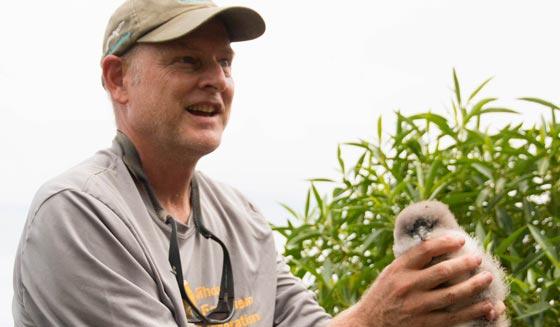
Dr. Eric VanderWerf
Director, Past President
Eric VanderWerf earned a Bachelor of Science degree from Cornell University in 1988 and Master of Science degree from the University of Florida in 1992. In 1999, he completed a Ph.D. at the University of Hawaii, where his research focused on plumage variation and effects of habitat disturbance and diseases on population biology of the Hawaii Elepaio.He has worked on a variety of conservation and ornithological projects in Hawaii and throughout the Pacific since 1991 during stints with the U.S. Fish and Wildlife Service and the Hawaii Division of Forestry and Wildlife. He has continued and expanded upon that work since founding Pacific Rim Conservation in 2007.
Eric has authored over 100 scientific papers, book chapters, government documents, and technical reports, serves as the leader of the Hawaiian Forest Bird Recovery Team for the U.S. Fish and Wildlife Service, a former member of the Endangered Species Recovery Committee for State of Hawaii, as an associate editor for the Condor, and as an associate editor of the Birds of North America. Eric was also one of the 2011 recipients of the US Fish and Wildlife Service Endangered Species Recovery Champion Awards for his work on the Nihoa Millerbird Translocation, and he and Lindsay Young have jointly received the 2019 Koa Award for Conservation Leadership from the Conservation Council of Hawaii, and are the 2022 recipients of the Ralph Schreiber Conservation Award from the American Ornithological Society which honors extraordinary conservation-related scientific contributions by an individual or small team.
